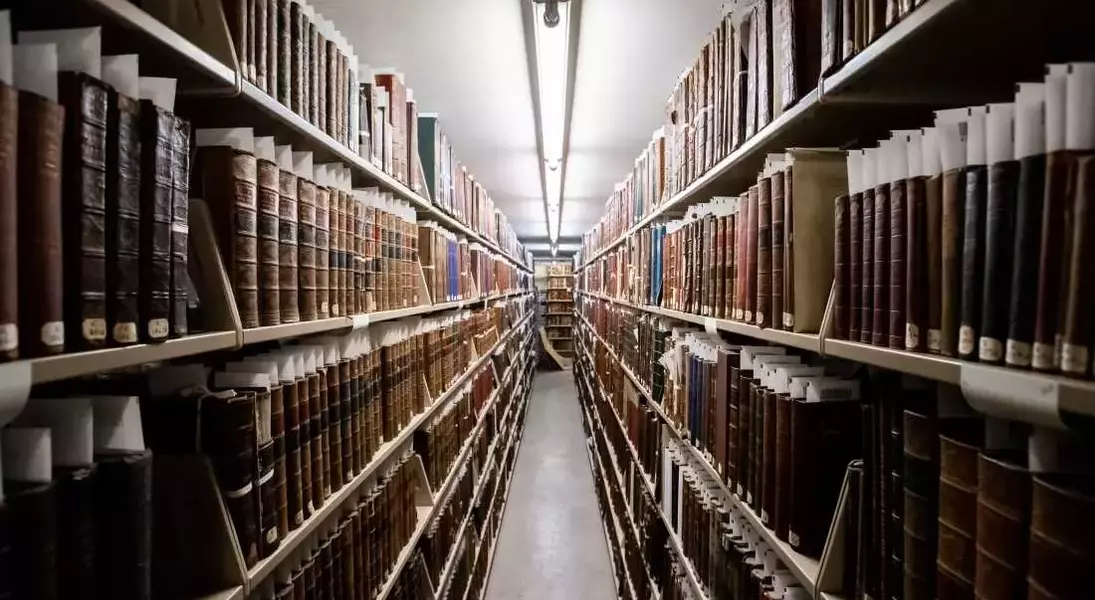



The Boston Public Library is embarking on a significant journey to democratize access to its vast historical archives. Through an ambitious partnership with Harvard Law School and OpenAI, the library is integrating artificial intelligence to digitize and enhance the accessibility of countless government documents. This collaborative endeavor not only promises to unlock centuries of invaluable information for a global audience but also highlights the evolving role of public institutions in the age of digital transformation, fostering a new era of open knowledge while navigating the complexities of technological advancement.
Boston Public Library Launches Pioneering AI-Powered Digitization Initiative
In a groundbreaking move set for the summer of 2025, the esteemed Boston Public Library, one of the nation's most venerable and expansive library systems, is set to revolutionize access to its profound historical collections. Collaborating with the prestigious Harvard Law School and the cutting-edge artificial intelligence firm OpenAI, the library is launching a transformative project. The core objective is to digitize and make universally accessible a colossal trove of historically significant government documents. These invaluable records, encompassing oral histories, congressional reports, and detailed surveys across diverse industries and communities, span back to the early 1800s.
Currently, the only way for the public to delve into these rich primary source materials is through an in-person visit. However, this pioneering initiative, spearheaded by Jessica Chapel, the Boston Public Library's Chief of Digital and Online Services, aims to dismantle these barriers. The project will meticulously enhance the metadata for each document, enabling users worldwide to effortlessly search and cross-reference entire texts from any corner of the globe. The initial phase targets the digitization of 5,000 documents by the close of the year, with an ambitious vision for exponential growth.
The endeavor faces considerable challenges due to the sheer volume and delicate nature of the historical collection. Each item requires careful, manual scanning, a process that yields 300-400 pages per hour. To overcome this, the Harvard Law School Library's Institutional Data Initiative is providing crucial support, working with libraries, museums, and archives to develop new AI models. These models are specifically designed to bolster the searchability of digitized collections. Funding from AI companies, including OpenAI, helps subsidize these efforts, offering a symbiotic relationship where these companies gain access to high-quality, out-of-copyright materials for training their large language models, thereby mitigating legal risks.
Burton Davis, Vice President of Microsoft's intellectual property group, emphasized the critical role of information institutions like libraries in building a sustainable data ecosystem for AI, noting that such partnerships not only increase data availability but also improve its quality and our understanding of its content. Greg Leppert, Executive Director of the Harvard Law School Library's Institutional Data Initiative, reiterated that the initiative's goal is not to grant exclusive access to AI companies; rather, the digitized data will be freely available to all, ensuring that the enhancements benefit public patrons directly.
OpenAI affirmed its commitment, stating that it benefits from the library's efforts to digitize the public domain, which expands the high-quality data pool for AI systems. This collaboration underscores a shared vision for expanding knowledge and accessibility.
A New Chapter: Balancing Innovation with Enduring Values
The collaboration between public libraries and AI corporations, while promising unprecedented access to information, also sparks a vital dialogue about the inherent differences in their operating philosophies. Library professionals, like Jessica Chapel of the Boston Public Library, view these partnerships as invaluable for making collections more accessible, recognizing the potential for AI to act as a powerful catalyst in this mission. The involvement of librarians in curating and categorizing data is seen as crucial for maintaining the integrity and trustworthiness of materials utilized by AI systems, ensuring that knowledge remains accurate and reliable.
However, this burgeoning alliance is not without its caveats. Experts in librarianship express a cautious optimism, highlighting a potential cultural divergence. Sam Helmick, President of the American Library Association, stresses the importance of trained professionals with deep subject knowledge in navigating this rapidly evolving landscape. Michael Hanegan, co-author of Generative AI and Libraries, articulates this tension by contrasting Silicon Valley’s “move fast and break things” ethos with the foundational library values of access, transparency, and methodical preservation. This inherent disparity in operational tempo and philosophical approach means that, while the technology sprints forward, libraries continue their work at a more deliberate pace, creating a dynamic interplay between rapid innovation and enduring institutional values. This ongoing dialogue is essential for ensuring that technological advancements truly serve the public good, preserving the integrity of information while expanding its reach.
